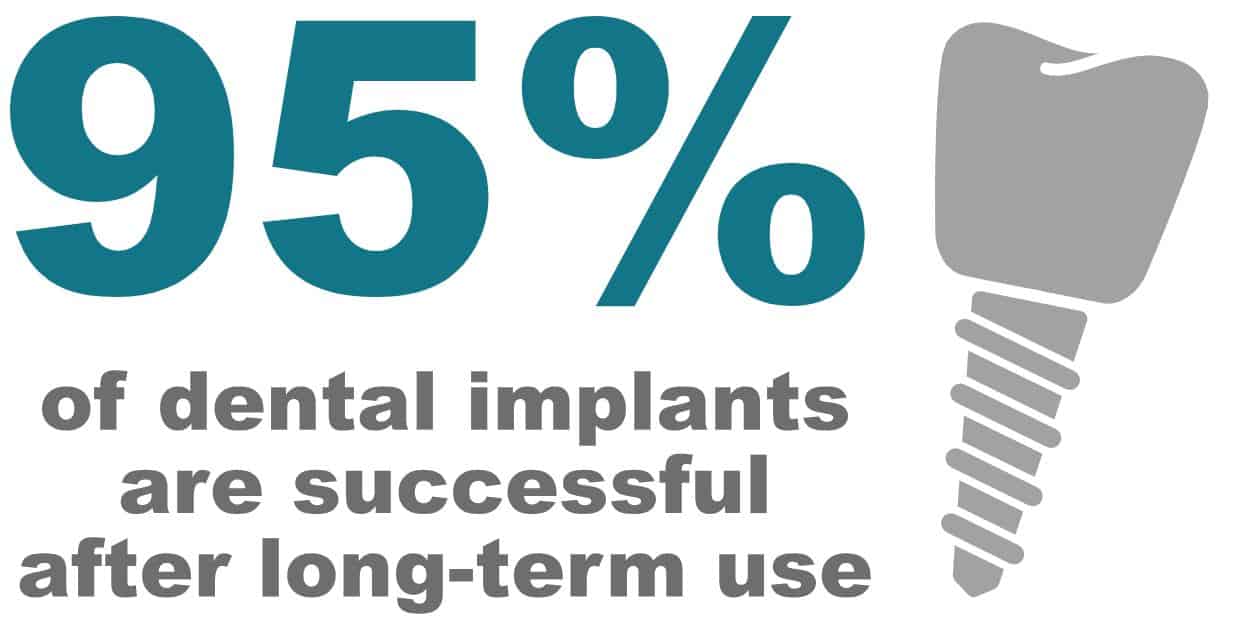What are the components of implant-supported restorations?
- Implant-supported restorations are made up of three major components –
- Dental implant: The screw that holds the reconstruction in place may be a crown or bridge.
- Implant abutment: The center of the implant that connects the screw and the implant crown or fixed implant bridge.
- Restoration: Either the crown or a portion of the bridge completes the implant and resembles a tooth.
What are the Implant-Supported Bridges or Dental Implant Crowns?
Implant crowns and bridges are provided by implants that are placed in your mouth to replace missing teeth. The implant resembles a screw. We position it in your jaw for maximum support. The implant anchors a dental crown.
Patients that need several tooth replacements can be eligible for implant-supported bridges. Depending on its length, the bridge can accommodate three to ten teeth.
When a patient is missing all of his or her teeth, they might require a full-mouth restoration. Implant-supported dentures may be used for the replacement of missing teeth. Our implants appear entirely normal, and no one can believe they are not your natural teeth.
What are the Types of Dental Implant Crowns?
There are two types of dental implant crowns available. Both are beneficial to patients.
Screw-retained dental implant crown
They are the first kind. The screw connects the dental implant abutment to the implant crown, which has a small gap. The dentist uses a matching bonding material to seal the hole.
The most significant advantage of a screw-retained implant crown and implant bridge is that if an implant abutment becomes loose, the dentist may remove the implant crown or implant bridge without causing any harm. Dentists prefer screw-retained implant bridges as multiple teeth can be replaced.
Implant crowns with cement retention
Cement-retained implant crowns have the same components as screw-retained implant crowns. They are distinguished by the use of cement to attach the cement-retained implant crowns to the implant abutment. This form of the crown has no gap. Dentists will have trouble extracting a loose crown and may need to drill a hole in it.
Dentists do not prescribe cement-retained implant crowns when a patient requires a sizeable restorative dentistry bridge.
Pros and Cons of Different Types of Dental Implants:
In dental implantology, the most widely used restoration is cementation. Advantages include coverage for poorly inclined implants, smoother passive fit due to the cement layer between the abutment and reconstruction, the absence of a screw access opening, resulting in the presence of an intact occlusal table, and easier occlusion control. However, one significant drawback is the difficulty of clearing excess cement for cement-retained implants. Excess cement is linked to the growth of peri-implant mucositis and peri-implantitis.
Screw-retained restorations, on the other hand, provide more predictable retrievability. They need less interocclusal space and easy to clean or for necessary repairs. Furthermore, angulated screw channel solutions have made screw-retained restorations feasible for the restoration of complex cases too.
When is the screw-retained dental implant crown recommended?
- A screw-retained dental implant is recommended in the following situations –
- There is a limited amount of space between the arches (interarch) (minimum 4 mm.)
- In the case of cantilever-style fixed prostheses.
- For fixed prostheses with a long duration.
- For temporization of implants in the esthetic zone to enable soft tissue conditioning and finalize the emergence and mucosal profile.
- When it is essential to be able to retrieve a component.
How to determine the best type of dental implant crown for me?
The clinician is responsible for determining the best form of retention for dental implants for each case. Esthetics, retention, bone preservation, and resistance are the four factors that play an essential role in determining the type of dental implant.

